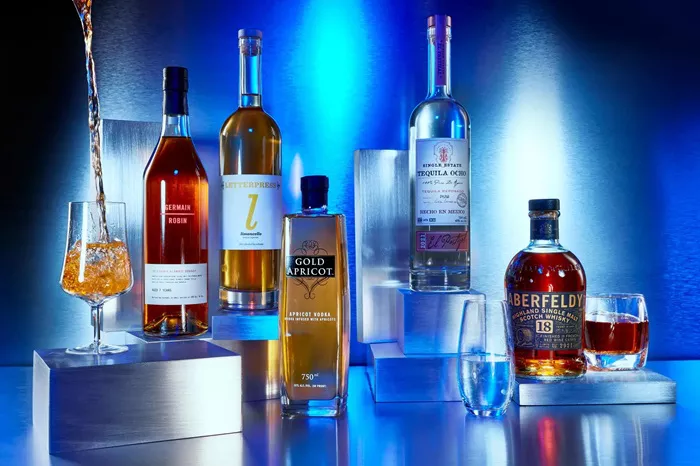Gin, a beloved spirit with a rich history dating back centuries, often finds itself at the center of spirited discussions among connoisseurs and enthusiasts alike. As one delves into the depths of its production, one question frequently arises: Is gin a neutral spirit? To answer this inquiry adequately, it’s imperative to explore the intricacies of gin’s production, its botanical profile, and how it distinguishes itself from truly neutral spirits.
Defining Neutral Spirits: Understanding the Basis of Distillation
Before delving into the debate surrounding gin, it’s crucial to establish a clear understanding of what constitutes a neutral spirit. Neutral spirits, also known as rectified spirits or pure alcohol, are distilled to a high level of alcohol purity, typically above 95% alcohol by volume (ABV). These spirits possess minimal flavor, aroma, or color, making them highly versatile as base ingredients in a wide array of alcoholic beverages.
Gin’s Origins: From Medicine to Mixology
The origins of gin trace back to the Middle Ages when it was first concocted as a medicinal tonic by Dutch physician Franciscus Sylvius. However, it wasn’t until later, during the 17th century, that gin evolved into the beloved spirit we recognize today. Distilled from grain and flavored with juniper berries and other botanicals, gin quickly gained popularity in England, where it became synonymous with the bustling streets of London.
The Distillation Process: Crafting Gin’s Signature Flavors
Unlike neutral spirits, gin undergoes a unique distillation process that imparts distinctive flavors derived from botanicals. Traditionally, gin is produced through a process known as pot distillation or column distillation, where a base spirit, typically derived from grains such as barley, corn, rye, or wheat, is redistilled with juniper berries and an array of botanicals.
Botanicals: The Heart and Soul of Gin
Central to the debate on whether gin qualifies as a neutral spirit is the role of botanicals in its production. While juniper berries are the hallmark botanical of gin, the inclusion of other botanicals such as coriander, citrus peel, angelica root, orris root, and various spices contributes to its complex flavor profile. These botanicals are carefully selected and balanced to impart a spectrum of aromas and tastes, ranging from floral and citrusy to spicy and herbal.
The Legal Definition: Gin’s Unique Classification
From a regulatory standpoint, gin is categorized as a distilled spirit flavored with juniper berries and other botanicals. However, within this overarching classification, there are distinct categories that delineate the level of botanical influence and the production methods employed. For instance, London Dry Gin mandates that botanicals be added during the distillation process, while other styles like Old Tom Gin may permit additional sweetening post-distillation.
Gin’s Flavor Spectrum: A Departure from Neutrality
Unlike neutral spirits, which exhibit minimal flavor characteristics, gin’s flavor spectrum is vast and varied, ranging from bold and juniper-forward to delicate and floral. This diversity is a testament to the artistry and creativity of distillers who carefully curate botanical blends to achieve a harmonious balance of flavors. Whether sipped neat, mixed into classic cocktails, or enjoyed in modern concoctions, gin’s distinctive character shines through, rendering it far from neutral in taste and aroma.
Mixology: Harnessing Gin’s Versatility
One need only explore the world of mixology to appreciate the versatility of gin as a base spirit. From timeless classics like the Gin Martini and Negroni to contemporary creations such as the Gin Basil Smash and the Corpse Reviver #2, gin serves as the backbone of countless iconic cocktails. Its botanical complexity adds depth and dimension to drinks, elevating the drinking experience and delighting the palate with each sip.
The Art of Distillation: Striking a Balance
At its core, the debate surrounding whether gin is a neutral spirit hinges on the balance between purity and flavor. While gin undergoes distillation to achieve a high level of alcohol purity, its essence lies in the careful infusion of botanicals, which impart character and depth to the final product. It is this delicate equilibrium between neutrality and complexity that distinguishes gin as a spirit of unparalleled allure and intrigue.
Craft Gin Renaissance: Celebrating Artisanal Excellence
In recent years, the craft gin movement has witnessed a renaissance, with a proliferation of small-batch distilleries and artisanal producers pushing the boundaries of traditional gin-making. Embracing innovative botanical combinations, unique aging techniques, and sustainable practices, these distillers are redefining gin’s landscape and challenging preconceived notions of what a gin can be. Their commitment to quality and craftsmanship underscores gin’s status as a spirit of enduring relevance and reinvention.
Conclusion: Embracing Gin’s Distinctive Identity
In conclusion, the question of whether gin is a neutral spirit is not easily answered with a simple yes or no. While gin shares certain characteristics with neutral spirits in terms of alcohol purity and distillation methods, its botanical composition and flavor profile set it apart as a category unto itself. As gin continues to evolve and captivate drinkers around the globe, one thing remains certain: its distinctive identity and enduring appeal make it a spirit worthy of celebration and exploration, whether enjoyed neat, mixed, or savored in cocktails old and new. So, is gin a neutral spirit? The answer lies in the glass, where each sip tells a story of tradition, innovation, and the timeless allure of gin’s botanical bounty.


